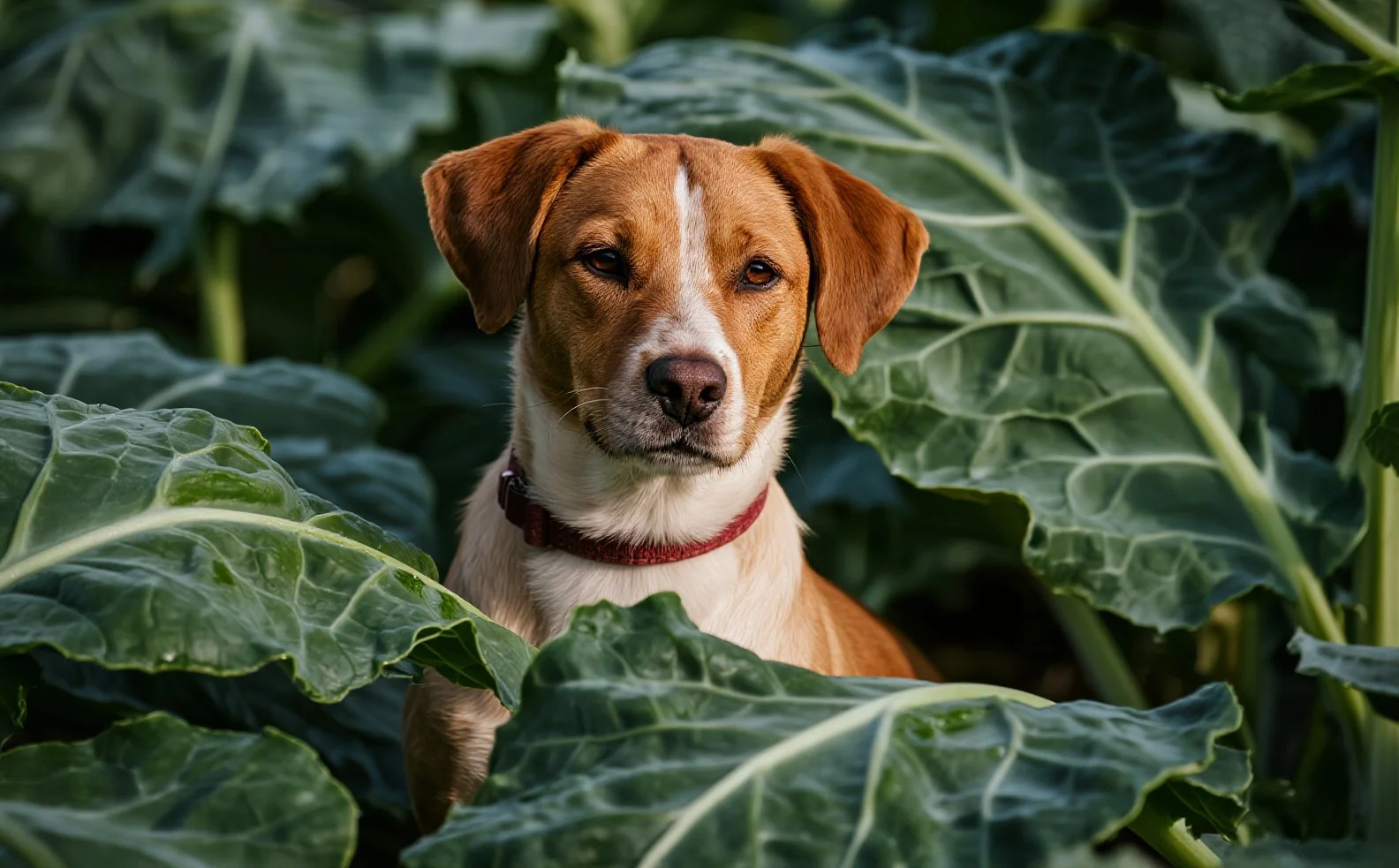As a loving pet owner, you want to offer your furry friend the best nutrition possible. With a myriad of food options available, it’s essential to know which ones are safe and beneficial for your dog. One vegetable that often raises questions is collard greens. Can dogs eat collard greens? This guide provides insight into this leafy green’s nutritional benefits and how to introduce it to your dog’s diet.
Table of Contents
Understanding Collard Greens
Collard greens are nutrient-dense, leafy vegetables that belong to the Brassica family, which also includes kale, broccoli, and cauliflower. They’re known for their robust, slightly bitter flavor and tough texture. These greens are often utilized in Southern cooking, but are also recognized for their health benefits for humans, rich in vitamins A, C, and K, as well as calcium and antioxidants. But what about our four-legged friends?
Nutritional Benefits for Dogs
While collard greens are not a staple in canine diets, they are non-toxic and can provide several health benefits when given in moderation. Here’s a closer look:
Vitamins and Minerals: Collard greens are packed with vitamins A, C, and K, which help support your dog’s immune system and maintain healthy skin and coat. Vitamin K is particularly beneficial for blood clotting, ensuring that your dog can heal wounds effectively
Antioxidants: The presence of antioxidants in collard greens can help combat oxidative stress in your dog, potentially reducing the risk of chronic diseases.
Fiber: This vegetable is rich in fiber, which aids digestion and can help maintain a healthy weight. A fiber-rich diet can promote regular bowel movements and overall gut health.
- Low in Calories: For pet owners looking to manage their dog’s weight, collard greens are a low-calorie option. When incorporated as part of a balanced diet, they can help your dog feel fuller without extra calories.
How to Prepare Collard Greens for Your Dog
Before adding collard greens to your dog’s diet, preparation is key. Raw collard greens can be hard for dogs to digest due to their tough texture. Follow these steps to make them safe and appealing:
Wash Thoroughly: Always rinse collard greens under running water to remove any dirt or pesticide
Cook Lightly: Steaming or boiling collard greens helps to soften their tough exterior, making them easier to digest. Avoid adding salt, spices, or oils, as these can be harmful to dogs.
Chop Finely: Once cooked, chop the greens into small, manageable pieces to prevent choking and make it easier for your dog to eat.
- Serve in Moderation: Introduce collard greens gradually into your dog’s diet to monitor for any adverse reactions. Start with a small amount to see how your dog digests it.
Potential Concerns
While collard greens can be healthy for dogs, there are some potential concerns to keep in mind:
Oxalates: Collard greens contain oxalates, which can contribute to calcium oxalate stone formation in susceptible dogs, particularly those with predispositions to kidney issues. If your dog is prone to urinary or kidney problems, consult your veterinarian before introducing collard greens.
Gas and Bloating: While fiber is beneficial for digestion, it can sometimes lead to gas or bloating. If you notice any discomfort in your dog after eating collard greens, it may be best to remove them from their diet.
- Allergic Reactions: As with any new food, watch out for signs of allergies. Symptoms may include itching, swelling, or gastrointestinal issues. If you notice any warranted reactions, it’s best to consult with your veterinarian.
Alternatives to Collard Greens
If you find that collard greens may not be the right fit for your pet, there are plenty of other vegetables that dogs can safely enjoy. Options include:
- Carrots: Great for dental health and a crunchy snack.
- Green Beans: Low-calorie and can be fed raw or cooked.
- Sweet Potatoes: A delicious and nutritious alternative packed with vitamins.
Conclusion
So, can dogs eat collard greens? Yes, in moderation and with proper preparation, collard greens can be a healthy addition to your dog’s diet. They provide essential vitamins and minerals beneficial for overall health. However, always monitor your dog for any negative reactions and consult with your veterinarian if you have any concerns. By prioritizing a balanced diet filled with various vegetables and protein, you can help ensure your furry friend stays happy and healthy.
